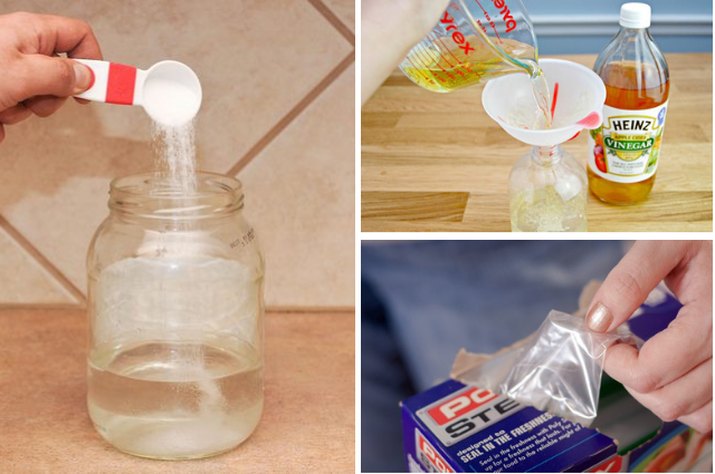 1 of 16
1 of 16
How to Get Rid of Common Pests
Bugs are bad. Nobody really likes them, but we do share the planet together. So most of us settle for keeping the insects outside and the humans inside. But when our worlds collide, we get anxious and often reach for pesticides to remove these intruders from our homes. After countless studies, the chemicals in these products have been linked to cancer, Alzheimer's disease, ADHD and even birth defects. Because the chemicals we often invite into our homes are much more dangerous than a cockroach or moth, we've put together a list of natural ways to bid goodbye to pests.
eHow 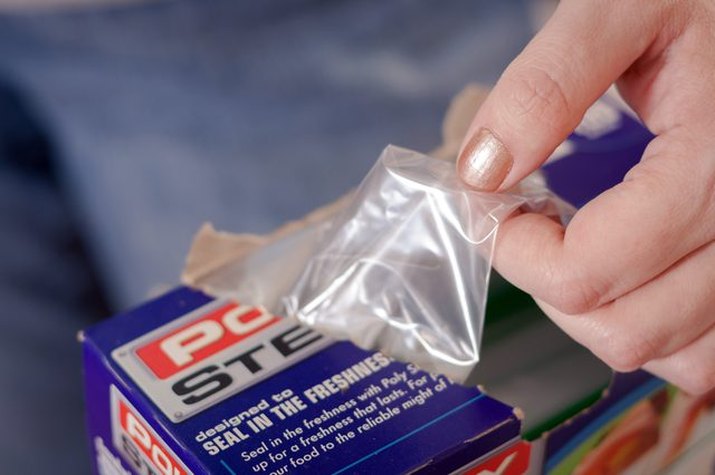 2 of 16
2 of 16
A Ziplock a Day Keeps Houseflies Away
North Carolina University explains that houseflies are linked to the spread of more than 30 diseases. The only thing worse than those fly-spread diseases are the chemicals in conventional pesticides, and our pest hacks will keep your life free of both! Start by spraying the surfaces in your home with an essential oil mixture of lavender and eucalyptus. You can also rotate with apple cider vinegar pest spray. Then hang a ziplock bag 1/2 full of water above doorways or windows. Flies' eyes are full of compact lenses that are confused by the refracted light shining through the water. Between these three methods, you should never need to shoo a fly again.
eHow 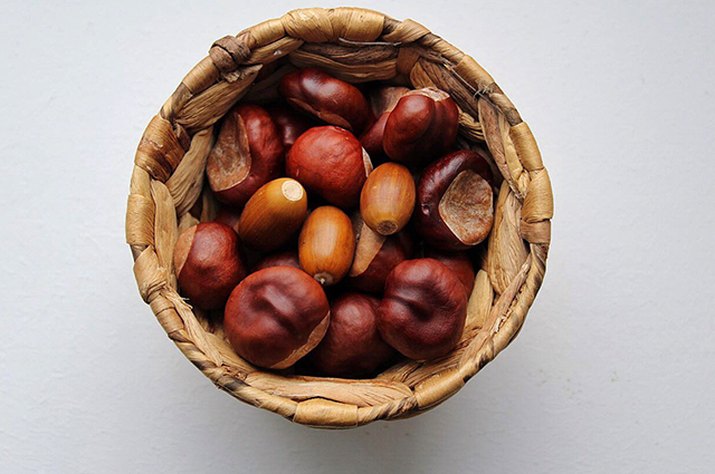 3 of 16
3 of 16
Spiders Hate Chestnuts
Even though spiders help to reduce the insect population in your home, arachnophobia is real! If you just can't stand seeing a spider run around your bathtub or kitchen floor, despite their many benefits, then try these non-toxic methods to repel arachnids. First, spray the entrances to your home with a concoction of citronella oil and lemon dish soap. While the efficacy of our second method is widely disputed on the web (pun intended), England's Royal Society of Chemistry swears that compounds found in chestnuts have been used as a spider repellent for centuries — so distribute a handful around our home wherever you see webs.
eHow  4 of 16
4 of 16
Say Goodnight to Bed Bugs
While it's a relief that we no longer use dangerous chemicals like DDT, the correlation between responsible pesticides and the reemergence of bedbugs in the U.S. is somewhat ironic. Since the 2001 ban of DDT, bedbug populations have become a nation-wide epidemic. But there's no need to spend sleepless nights worrying! This step-by-step guide will show you how to eliminate infestations and maintain a bedbug-free space.
eHow  5 of 16
5 of 16
Give Cockroaches Something Sweet
Cockroaches are nearly impossible to get rid of, but they do have one weakness: Cockroaches only inhabit spaces that provide them the resources they need. Use this tutorial to find their hiding places and remove their food supply. Then it's a matter of sealing off entry points into your home, trapping any remaining cockroaches by placing equal parts boric acid and powdered sugar into mason jar lids and distributing them throughout your space. If you have pets, skip the traps and try sprinkling diatomaceous earth instead.
Milkos/iStock/GettyImages  6 of 16
6 of 16
Silverfish and Centipedes Love the Sunday Paper
No, they aren't voracious readers. Instead, silverfish and centipedes love the flavor of newspapers and magazines. They also enjoy to pair their meal with a tall drink of water, which is why many people report seeing them in the bathroom. In addition to sprinkling diatomaceous earth around bathtubs, pipes and sinks, create a DIY trap by wrapping a glass jar with masking tape (which gives them traction to climb) and place bits of bread and wet newspaper at the bottom. Set the traps wherever you've seen these leggy pests scamper about.
eHow 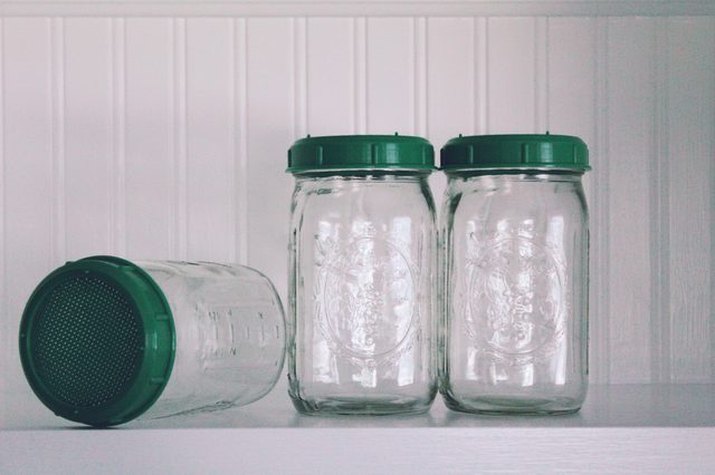 7 of 16
7 of 16
Make Mosquitoes a Thing of the Past
Mosquitos are among the deadliest creatures on the planet. The CDC reports that mosquitos kill more than a million people each year by transmitting malaria. That statistic doesn't even represent fatalities from either zika, West Nile virus or dengue fever. Begin purging your environment of mosquitos by eliminating standing water. Plant garlic and lavender around your home, and be sure to keep weeds trimmed throughout mosquito season (typically, the spring and summer months). Set and maintain mosquito traps made by cutting off a plastic beverage bottle, turning the top upside down and placing it back into the bottle so that it resembles a funnel. Bring equal parts water, sugar and yeast to a boil and pour the concoction into the bottle-trap. Place these around the perimeter of your home in dark, humid areas.
eHow 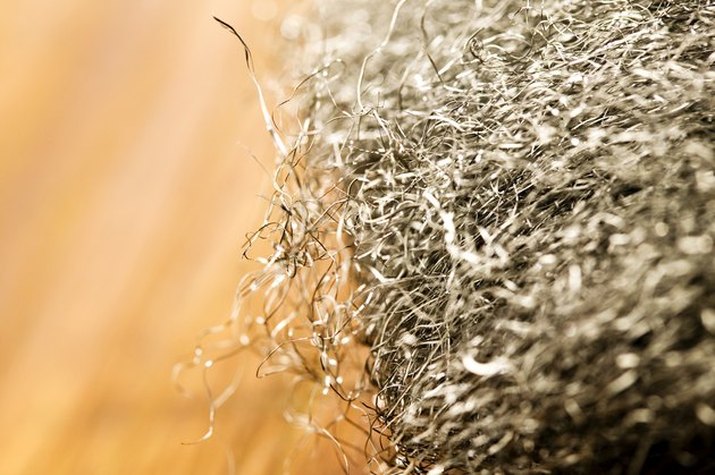 8 of 16
8 of 16
Steel Wool Deters Rodents
If you don't have a cat (or your cat is super lazy), securing your home from rodents is more of a process than a quick fix. Start by sealing cracks in the walls with a coat of water-based latex paint. Stuff steel wool into larger openings and then spackle them into place with a caulking gun. Use the same tube of caulk to seal cracks in the foundation. Team eHow has also been successful with using a bit of farmers' wisdom: potato flakes.
eHow 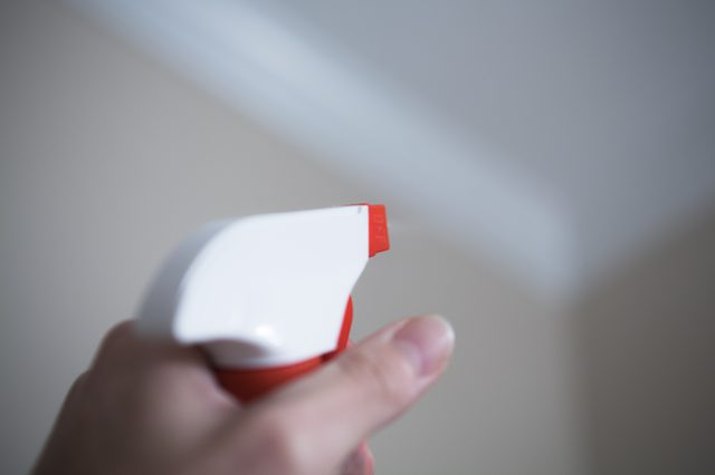 9 of 16
9 of 16
Bid a Fond Farewell to Fleas
A bane for pet owners, fleas are nearly as persistent as cockroaches. But fear not! We've got several steps to naturally rid your home and pets of fleas. Trap adult fleas by placing a bowl of soapy water beneath the lamp nearest to where your pet sleeps. Fleas are attracted to the warmth of the light, and they will get stuck in the water. While diatomaceous earth is harmless to humans and pets, it's a powerful remover of fleas. Spread the natural compound on baseboards, carpets and near pet bedding — wherever you've noticed fleas congregating. For particularly pesky pests, try our homemade flea and tick spray.
eHow 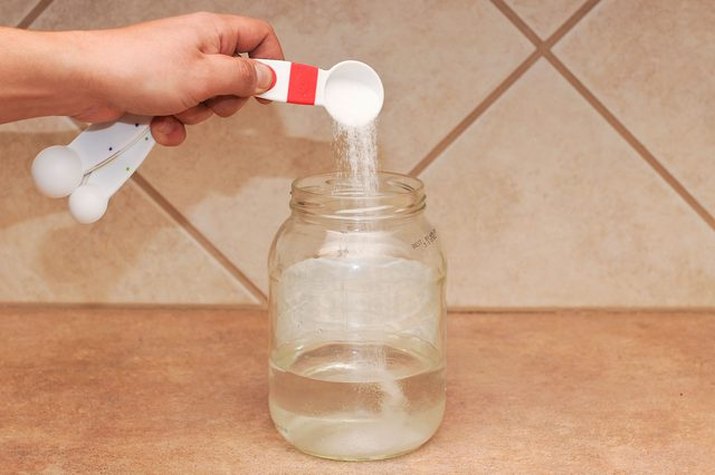 10 of 16
10 of 16
Dry Out Ant Colonies With a Baking Soda Solution
Most every home in the U.S. has been set upon by ants at some point in time. While some view these efficient cleaners as helpful, many just can't get comfortable with the idea of creepy crawlies in the kitchen. Depending on your situation, you can dry out ant colonies by sprinkling their hills with diatomaceous earth. If your ant situation calls for a lighter touch, try spreading cinnamon powder on the flooring between rooms and then overwhelming their sense of smell by dabbing essential oils near entry points into your home. You can also create natural traps by combining equal parts sugar with either baking soda or borax in the lid of a mason jar. The ants will crawl in for a taste of something sweet, but they won't crawl out. If you've got an issue with fire ants, we have a non-toxic, but severe solution.
eHow  11 of 16
11 of 16
Wary of Wasps? Try Peppermint Oil
Wasps are the most aggressive pests many Americans will come into contact with. Not only is ridding your home of a wasp nest dangerous, most over-the-counter solutions found in home improvement stores are full of chemicals that are deadly to both humans and pests alike. Thankfully, wasps find peppermint oil extract repulsive. Use eHow's powerful peppermint oil formula as a repellent by spraying all exterior surfaces. Then make an extra strong batch, add a cup of dish soap and pour the concoction into a hose-end sprayer to deal with unwanted wasp nests.
eHow  12 of 16
12 of 16
Much Ado About Moths
There are several varieties of moths, but they all like to eat things that don't belong to them. Clothes-moths eat natural fibers such as wool, feathers or felt, while pantry moths eat stored grain products like seeds and nuts. Ridding your home of both types can be a several-step process that begins with capturing the eggs from clothing, closets, bedding and pantries with a vacuum. Place moth-infested clothing into the freezer for 48 hours to kill larvae and eggs. Create DIY moth traps by mixing equal parts dish soap and water and pouring the concoction into a bowl beneath lamps in your home. The moths will get stuck in the water while fascinated by the light. The final step is to place sachets of cedar chips into your storage spaces and keep vulnerable items in air-tight containers.
eHow 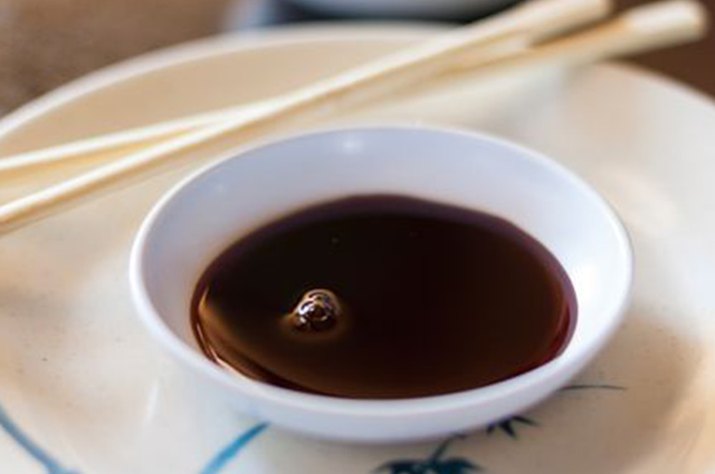 13 of 16
13 of 16
Treat Earwigs to Some Soy Sauce
When they're not noshing on houseplants or the herbs in your garden, earwigs love small spaces like mailboxes. Use this go-to tutorial for isopropanol; it's an effective, topical repellent for earwigs and many other common household pests. Also, create dish traps using equal parts soy sauce and olive oil. Cover the dish with plastic wrap and poke holes large enough for earwigs to crawl into. Place these non-toxic traps wherever you've seen earwigs congregate (like the mailbox).
eHow 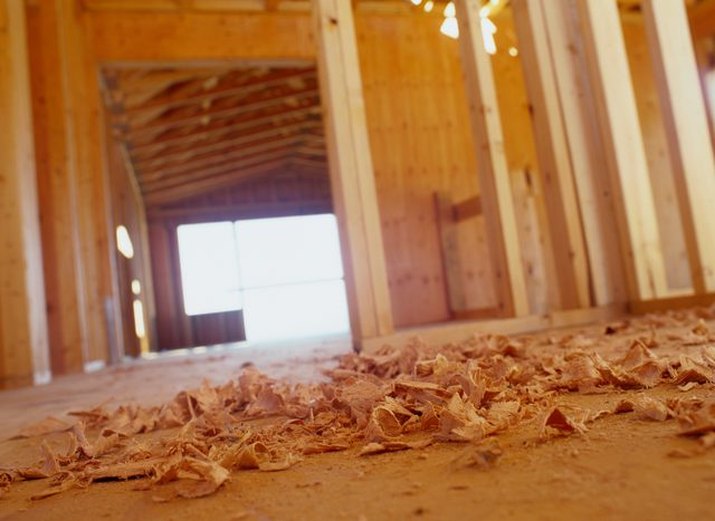 14 of 16
14 of 16
Team Up on Termites
From your furnishings to the studs that frame your walls, termites feed on wood found in your home. They are so destructive, that it's recommended to seek the help of a professional. However, if you're concerned about exposure to toxic chemicals, we have a few natural options. The first is to lure the termites away from your home by placing soaking-wet cardboard near their colony. Every few days, remove, burn and replace the termite-infested cardboard. Sprinkle diatomaceous earth wherever you see evidence of termites, and spray visible congregations with this DIY isopropyl alcohol spray. Finally, seal entry points to your home using this tutorial. Don't give termites a reason to return.
eHow 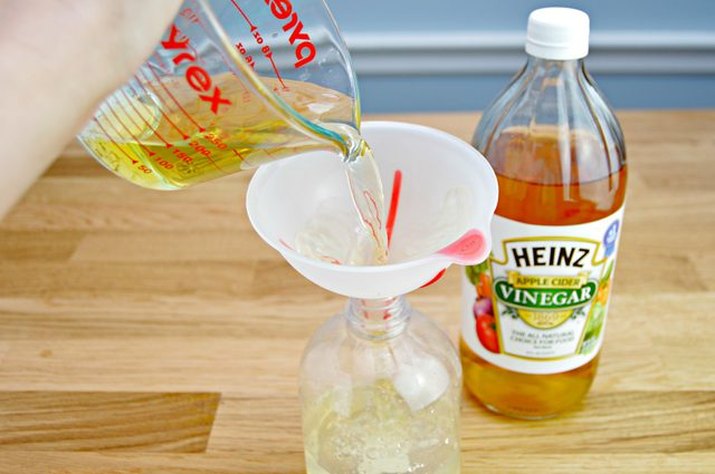 15 of 16
15 of 16
Apple Cider Vinegar Repels Fruit Flies
Seriously, is there anything that apple cider vinegar can't do? If this handy ACV-based repellent doesn't do the trick, get medieval on those fruit flies with these homemade traps by combining equal parts apple cider vinegar and dish soap into a plastic wrap-covered bowl. The fruit flies will enter through holes poked into the plastic to get a taste of the sweet vinegar, but the dish soap will trap them in the bowl.
eHow  16 of 16
16 of 16
Weird About Weevils
Nothing is worse than opening up a bag of rice or a box of pasta and discovering weevils wiggling around in your grub (pun intended). While there's no solution to contaminated food (aside from throwing it out), we do have a plan to ensure that weevils never show up for dinnertime ever again. Start by removing any contaminated food products, and then clean and wipe down storage areas with a vinegar-and-water spray. Put pastas and boxed foods into airtight containers from here on out. And, if you're really wigged-out about weevils, you can place packaged foods into the freezer for 48 hours to kill any eggs and larvae that might be dormant in your newly-purchased pastas and rice.
eHow


